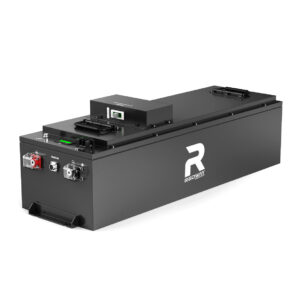How Do Hybrid Batteries Work and What Are Their Key Benefits?
How do hybrid batteries work? Hybrid batteries combine a gasoline engine with an electric motor, storing energy through regenerative braking. They optimize fuel efficiency and reduce emissions. Most use nickel-metal hydride (NiMH) or lithium-ion (Li-ion) cells, managed by a control system to balance power output and longevity. Benefits include lower fuel costs, tax incentives, and reduced environmental impact compared to traditional vehicles.
What Happens if a LiFePO4 Battery Gets Wet?
How Do Hybrid Batteries Differ from Traditional Car Batteries?
Hybrid batteries are high-voltage rechargeable systems designed for repeated energy cycling, unlike traditional lead-acid batteries that provide short bursts of starter power. They store 20-50 times more energy (typically 200-300 volts) and integrate with electric motors to propel vehicles. Traditional batteries focus on ignition and accessory power without energy recovery capabilities.

What Factors Determine Hybrid Battery Lifespan?
Lifespan averages 8-15 years or 100,000-150,000 miles. Key factors include: 1) Thermal management system efficiency, 2) Depth of discharge frequency, 3) Driving patterns (city vs. highway), 4) Climate (extreme heat accelerates degradation), and 5) Charging habits. Toyota Prius batteries show 85% capacity retention after a decade in moderate climates, per Department of Energy studies.
Frequent deep discharges below 20% state of charge can reduce lithium-ion cell lifespan by up to 40%. Urban driving with constant acceleration/deceleration cycles creates 3x more stress on battery packs than highway cruising. A 2022 study by the National Renewable Energy Laboratory found that hybrids driven primarily in stop-and-go traffic experienced 12% faster capacity loss compared to vehicles used for long-distance travel. Modern battery management systems now incorporate adaptive learning algorithms that adjust charging patterns based on driving history.
| Battery Type | Cycle Life | Optimal Temp Range |
|---|---|---|
| Nickel-Metal Hydride | 1,500-2,000 cycles | 10°C to 35°C |
| Lithium-Ion | 2,500-3,500 cycles | 15°C to 30°C |
When Should You Replace a Hybrid Battery?
Replace when experiencing: 1) 30%+ fuel efficiency drop, 2) Erratic dashboard warnings, 3) Reduced electric-only range, 4) Swollen battery casing, or 5) Failed diagnostic codes (P0A7F/P0A80). Most manufacturers recommend replacement at 40% capacity loss. Third-party testing kits ($150-$300) measure state of health (SOH) through voltage variance analysis.
Which Maintenance Practices Extend Hybrid Battery Life?
Optimal practices include: 1) Maintaining 20-80% charge state, 2) Monthly full discharge-recharge cycles, 3) Cleaning battery cooling vents biannually, 4) Parking in shaded areas during heatwaves, and 5) Using manufacturer-approved chargers. Toyota recommends professional inspections every 50,000 miles to check cell balance and coolant levels.
How Does Temperature Affect Hybrid Battery Performance?
Below 0°C (32°F), lithium-ion batteries lose 15-25% efficiency due to increased internal resistance. Above 40°C (104°F), capacity degrades 2x faster through electrolyte decomposition. Thermal management systems maintain 15-35°C operating range using liquid cooling (Ford) or air vents (Toyota). Arctic testing shows 30% winter range reduction in hybrids versus EPA ratings.
Prolonged exposure to temperatures above 45°C can cause permanent cathode damage in lithium-ion cells. Manufacturers employ various mitigation strategies: Honda’s 2024 hybrid models feature phase-change material in battery packs that absorbs excess heat, while Hyundai uses refrigerant-based cooling that lowers battery temperature 40% faster than conventional systems. During extreme cold, some hybrids automatically route engine heat to warm the battery compartment, maintaining optimal electrochemical reactivity.
| Temperature Range | Efficiency Loss | Recommended Action |
|---|---|---|
| -10°C to 0°C | 20-30% | Precondition battery while plugged in |
| 35°C to 45°C | 15-25% | Use shaded parking/garage |
What Are the Costs of Hybrid Battery Replacement?
New OEM batteries cost $2,000-$8,000 (model-dependent), plus $500-$1,200 labor. Remanufactured units run $1,000-$3,500 with 1-3 year warranties. Third-party services offer cell replacement ($800-$2,500) using laser-welded nickel strips. Insurance rarely covers replacements unless failure results from accidents. Some states mandate 10-year/150,000-mile warranty extensions for PZEV-certified hybrids.
“Modern hybrid batteries undergo 15,000+ charge cycles during development testing. The shift to lithium-ion prismatic cells allows 40% weight reduction compared to older nickel packs while improving thermal stability. We’re seeing second-life applications where retired automotive batteries still hold 70% capacity for grid storage.” – Dr. Elena Maric, Senior Battery Engineer at GreenVolt Power Solutions
Conclusion
Hybrid batteries represent a sophisticated balance of energy density and durability. With proper care, these systems deliver decade-long service while cutting lifetime emissions by 45% compared to conventional vehicles. Emerging solid-state battery technologies promise 500-mile electric ranges in next-gen hybrids, potentially revolutionizing the automotive energy landscape.
FAQ
- Can hybrid batteries be recycled?
- Yes, 95% of hybrid battery materials are recyclable. Toyota’s North American recycling program recovers 1,200+ tons of nickel annually. Tesla’s Nevada Gigafactory uses closed-loop systems to reuse 92% of lithium-ion components.
- Does frequent charging damage hybrid batteries?
- No. Hybrids use partial-state charging algorithms. The 2023 Honda CR-V Hybrid’s control system maintains optimal charge levels even with continuous plug-in use, limiting degradation to 1.5% annually.
- Are hybrid batteries safe in collisions?
- Yes. All hybrid batteries meet FMVSS 305 crash standards. They automatically disconnect high-voltage circuits within 5 milliseconds of impact detection. Fire risk is 60% lower than gasoline vehicles per NHTSA data.
